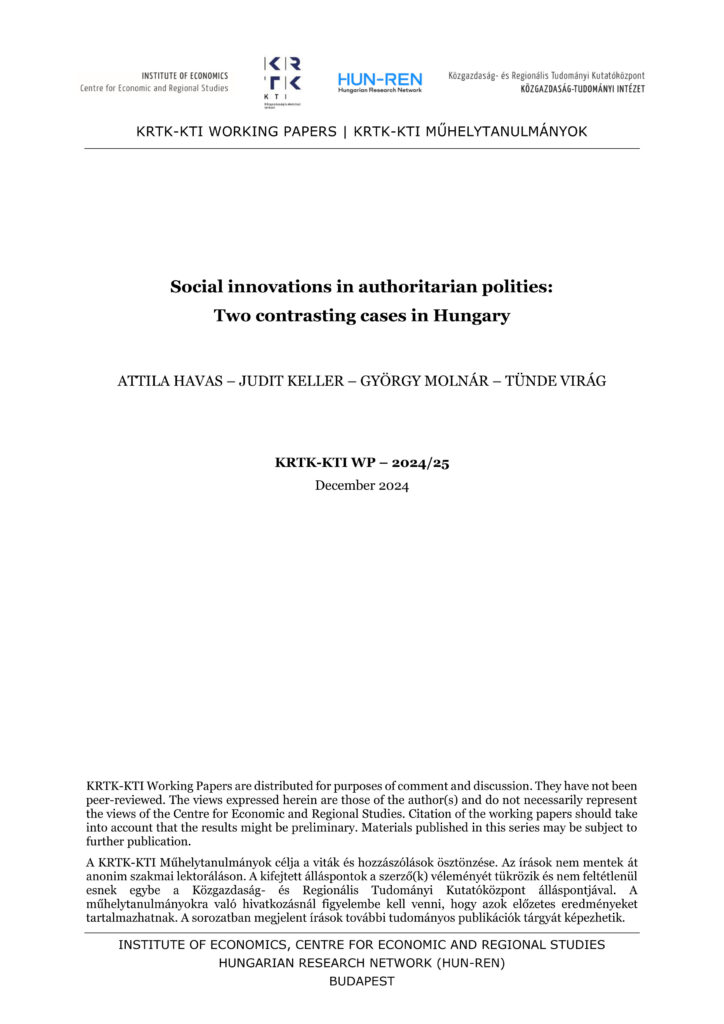Rising inequalities and deprivation have been important drivers for social innovation (SI). We understand SIs as novel initiatives or novel combinations of known solutions, aimed at tackling a societal problem or creating new societal opportunities, applied in practice. SIs success requires enabling institutional framework that facilitate collaborative agency for its design and implementation. However, authoritarian governance undermines such framework conditions. Authoritarian regimes feed on social polarisation, centralisation of power, strengthening of hegemonic governance modes, weakening transparency, accountability, and the rules of law. Hungary has become a prime example of democratic backsliding with socio-spatial disparities intensified by perverse public policies and clientelist patterns of relations. By presenting two SI cases from Hungary, this paper illustrates different ways, in which ‘insider’ and ‘outsider’ SI practitioners can interact with, and operate in, an authoritarian system. It discusses how agents’ different positions influence their SI practices and strategies and offers theoretical and practical implications.
Publikációk / Social innovations in authoritarian polities: Two contrasting cases in Hungary
2025
Sep
03
M
T
W
T
F
S
S
1
2
3
4
5
6
7
8
9
10
11
12
13
14
15
16
17
18
19
20
21
22
23
24
25
26
27
28
29
30
1
2
3
4
5
Next month >
a
2025
Sep
03
M
T
W
T
F
S
S
1
2
3
4
5
6
7
8
9
10
11
12
13
14
15
16
17
18
19
20
21
22
23
24
25
26
27
28
29
30
1
2
3
4
5
Next month >


